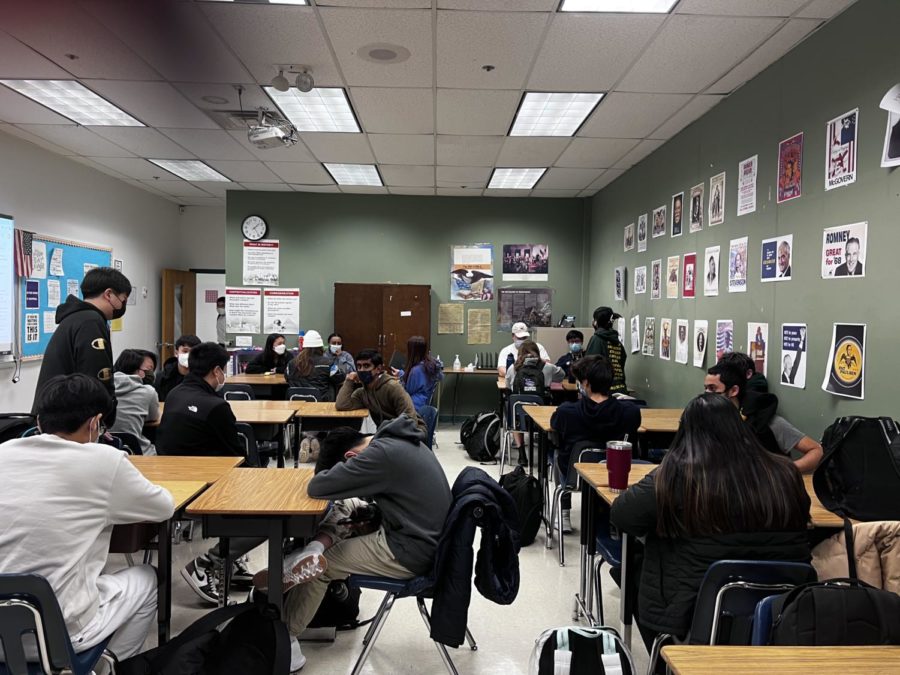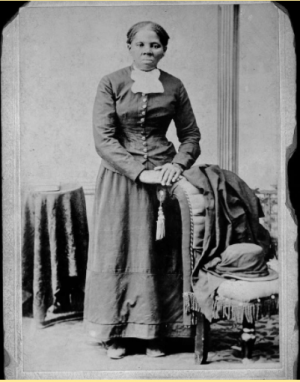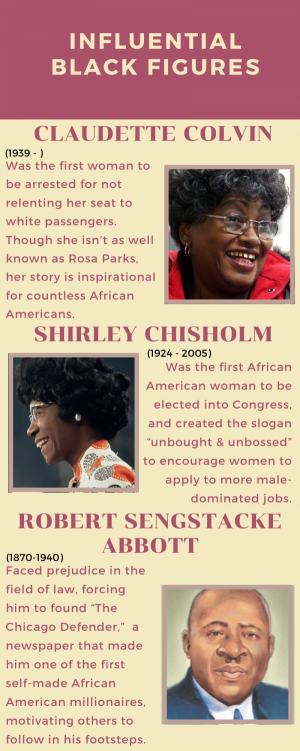History classes shouldn’t be taught through a white perspective
Mrs. Brandquist’s seventh period AP United States History class learns about America’s Gilded Age, a period uncommonly known to have marked a rise in American racism.
March 1, 2022
With about 63.2% of Fairfax County Public School students recorded as people of color, discussions surrounding racial tensions need to be made in an informed and honest manner, without holding back any gruesome details of the past.
The minds of many students remain innocent from the atrocities committed against minorities in the United States through their developing years. This lack of awareness turns into a serious issue when these students become adults, as their opinions are based on a flawed version of history. In a series of textbooks written for fourth, seventh, and 11th grade Virginians, children were taught that “most [slaves] were treated with kindness,” according to the Washington Post. It is essential to prevent this faulty lens of history by working past discriminatory issues, to benefit the country as a whole.
Although it seems obvious that history must be taught through the honest events of the past, which includes the dark side of America’s history, many parents and officials disagree. According to Time, some adults fear the thought of teaching critical race theory–the concept of how race is strictly a social construct, and how racism is ingrained into the legal system – in schools due to speculations that it will cause children to hate America and further divide the nation, leading to most school systems avoiding it in their curriculum.
Opposition to critical race theory is somewhat exaggerated as most people understand it is vital to learn from mistakes, including historical mistakes. In this day and age, most Americans understand slavery and discrimination are morally wrong and should never be repeated. To leave out the details of how America has wronged Black Americans and people of color would discredit the hardships minorities had to face to receive fundamental rights in America. No amount of spared feelings is worth that disservice.
There is still more to be done to properly educate American children, despite efforts to support diversity and inclusivity. Locally in FCPS, measures have been taken to address a lack of representation, such as addressing cultural backgrounds during advisory periods and creating student leadership organizations such as Student Equity Ambassador Leaders to promote an understanding of diversity and equity amongst the student body.
FCPS continuously makes efforts in support of diversity by acknowledging the achievements of people of color in science and teaching literature reflective of the community’s diversity, according to ABC 7. But the school system needs to push forward with the fight against racism in classrooms.
According to the Association of American Colleges and Universities, history books and other texts with “whitewashed” material that is “dumbed-down” to seem more palatable to the broadest possible market need to be replaced with more enriching material. FCPS is making strides forwards to combat this issue with courses dedicated towards Black History, but across the county, history texts should be composed of mostly primary source documents to keep education as honest and straightforward as possible. Most essentially, historical education can not continue to cover up for the wrongs of America’s past.
New education plans must teach students about the presidents who owned slaves, the horrific actions against Black Americans after the Civil War, the genocide and continuous discrimination against Native Americans and the internment of Asian Americans during the Second World War. Furthermore, to truly educate students, it is essential to teach them about the accomplishments of people of color in all United States history classes, such as Sojourner Truth, Frederick Douglass, and Sitting Bull, instead of prioritizing only the white side of history.
FCPS has the right sentiment behind appreciating diversity in the community, but in terms of an actual change in curriculum, there is still much to be done.






